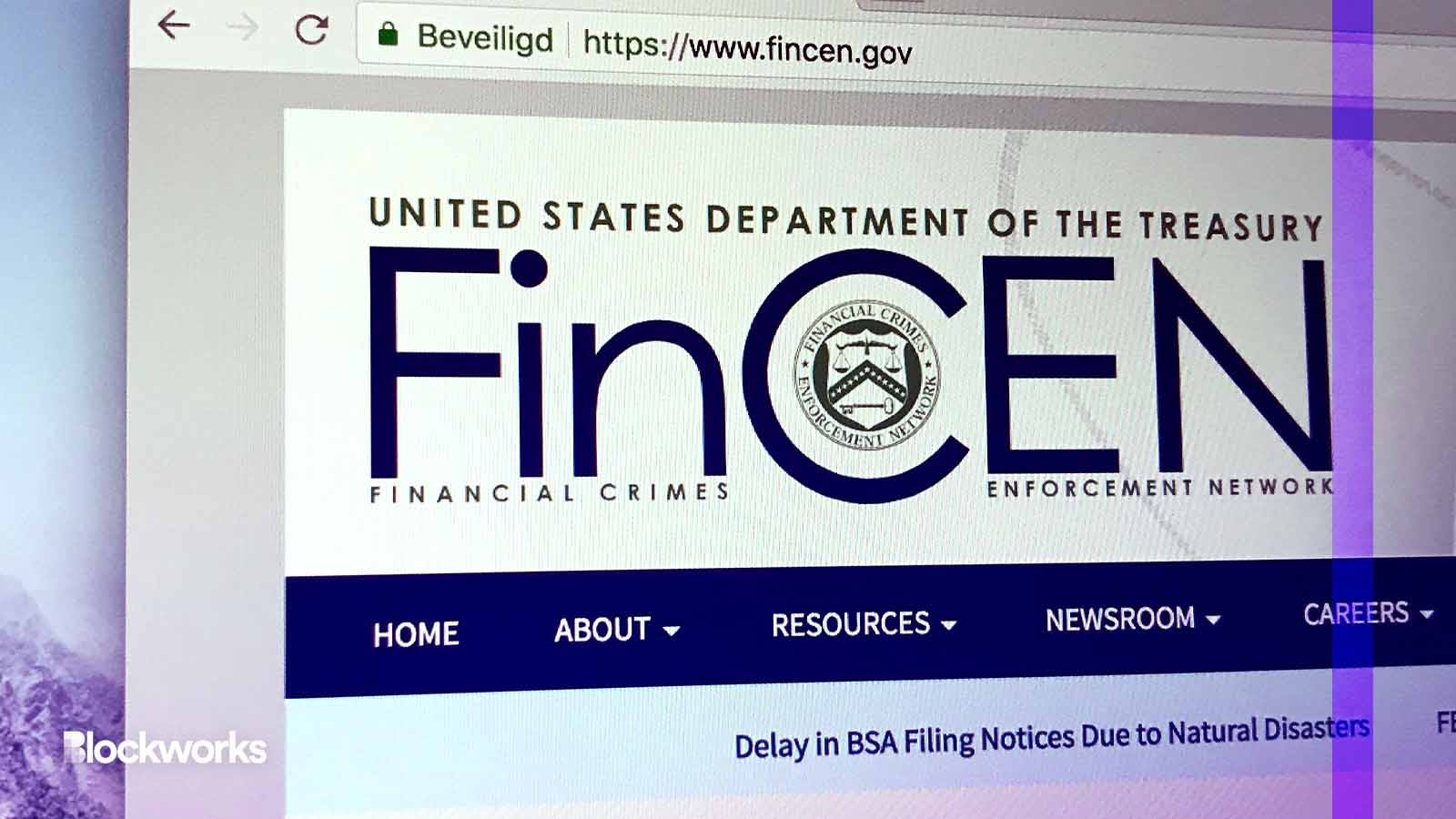Attorneys say DOJ’s Tornado Cash charges contradicted FinCEN guidance
Cherry picking or smart legal analysis? Attorneys clash over how to interpret FinCEN guidance in light of Tornado Cash indictment

Jarretera/Shutterstock modified by Blockworks
Some crypto advocates and legal experts have called out the Department of Justice’s charges against Tornado Cash founders Roman Storm and Roman Semenov.
Their argument: American law enforcement officials are going against guidance previously issued by the US Treasury Department, the Financial Crimes Enforcement Network (FinCEN) in particular.
The DOJ announced its indictment against Storm and Semenov last month. The two are alleged to have laundered upwards of $1 billion in “criminal proceeds” through the mixing service, according to a joint statement from a number of US agencies.
In a new paper, attorneys from Cravath, Swaine and Moore LLP highlight what they allege are inconsistencies between the 2019 guidance from FinCEN and the recent indictment against Tornado Cash’s founders. The paper’s authors pay particular attention to the allegations that the pair operated an unregistered money transmitter.
Read more: Crypto advocates still disagree with Tornado Cash sanctions, but some say criminals must be charged
FinCEN released guidance in May 2019 on “convertible virtual currencies,” under which the regulator states that wallet providers are generally not money transmitters, even if the provider acts as a validator.
To act as a money transmitter, the host of the wallet must have “total independent control over the value (although it is contractually obligated to access the value only on instructions from the owner),” FinCEN wrote in 2019.
“While the [Tornado Cash] indictment contains detailed allegations with regard to the ways the founders exerted control over the Tornado Cash service generally, it is silent as to how the founders or their alleged co-conspirators controlled the value itself — the critical question from the perspective of FinCEN’s 2019 guidance,” Cravath attorneys wrote in their Sept. 1 paper.
Cravath’s team argues that because Tornado Cash users had to use a “secret note,” which only the customer ever had access to, to deposit and withdrawal funds, the founders never had “total independent control.”
Peter Van Valkenburgh, director of research at non profit advocacy firm Coin Center, agreed with that conclusion, adding that Tornado Cash founders never had control over contracts in the mixing service.
“To our knowledge, the only control that the defendants ever had over the smart contracts was the ability to change aspects of cryptography related to Tornado Cash’s privacy features and never had any ability to actually access, move, or direct the user funds in the contract,” Van Valkenburgh wrote last month. “If that technical analysis is accurate then it does not seem likely the defendants ever had the sort of ‘independent control’ over the transmitted value that FinCEN describes in its guidance.”
Other legal experts are not so certain about Cravath’s reasoning. They argue that the attorneys are neglecting a key section of FinCEN’s 2019 guidance on decentralized applications, known as dapps.
Tornado Cash better fits the definition of a dapp, as opposed to a wallet, Gabriel Shapiro, general counsel at Delphi Labs, wrote on X, formerly Twitter.
“When dapps perform money transmission, the definition of money transmitter will apply to the dapp, the owners/operators of the dapp, or both,” FinCEN’s 2019 guidance reads.
Money services businesses being run via smart contracts should be treated as money services businesses, FinCEN advised, even when the business is operated by an unincorporated association.
Get the news in your inbox. Explore Blockworks newsletters:
- The Breakdown: Decoding crypto and the markets. Daily.
- 0xResearch: Alpha in your inbox. Think like an analyst.






